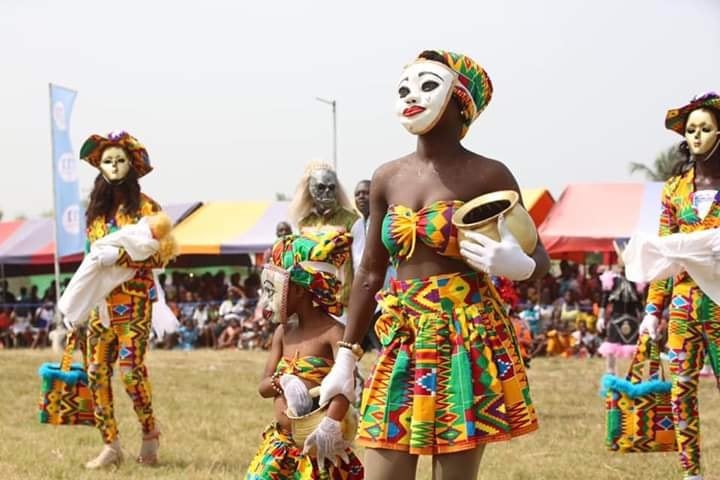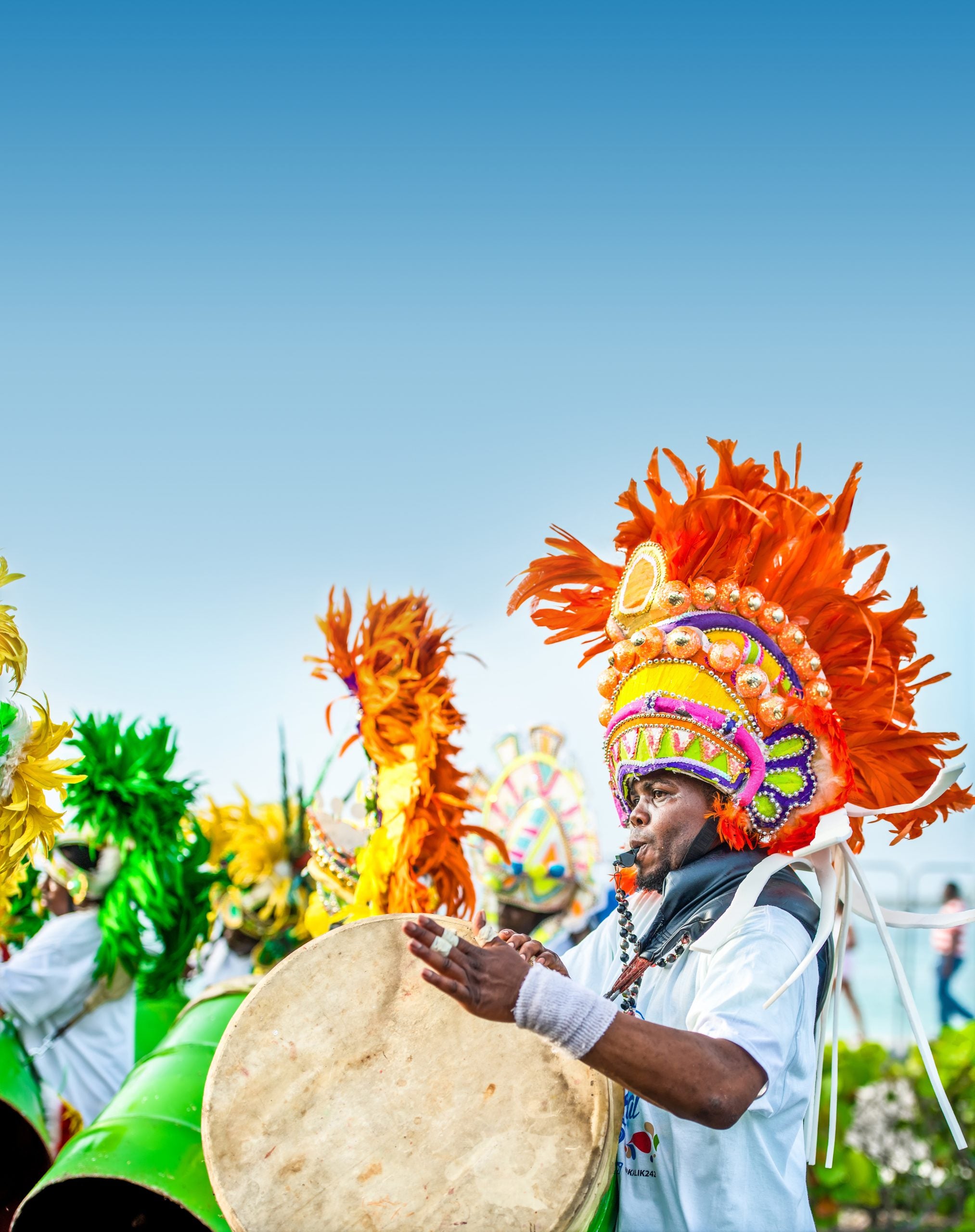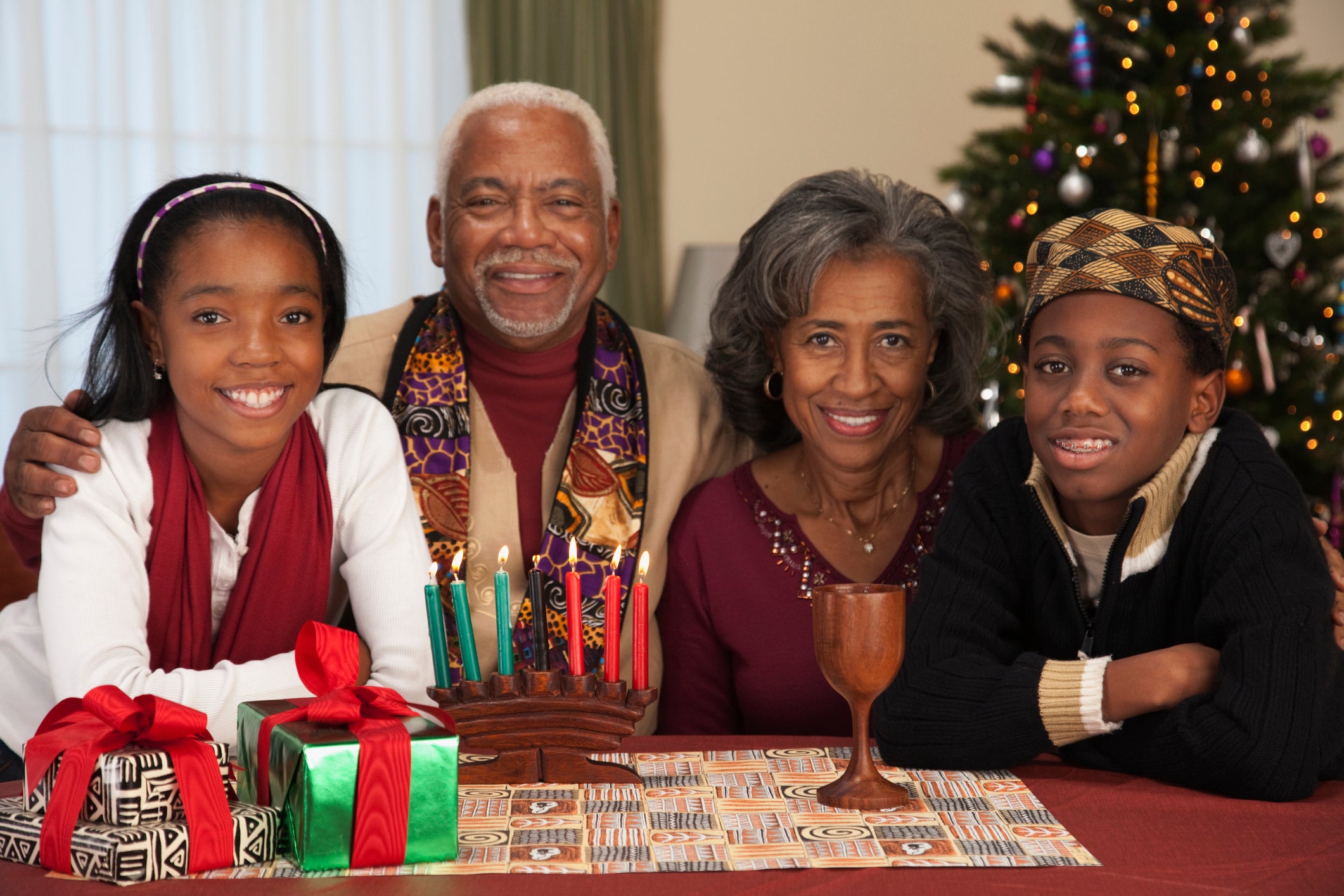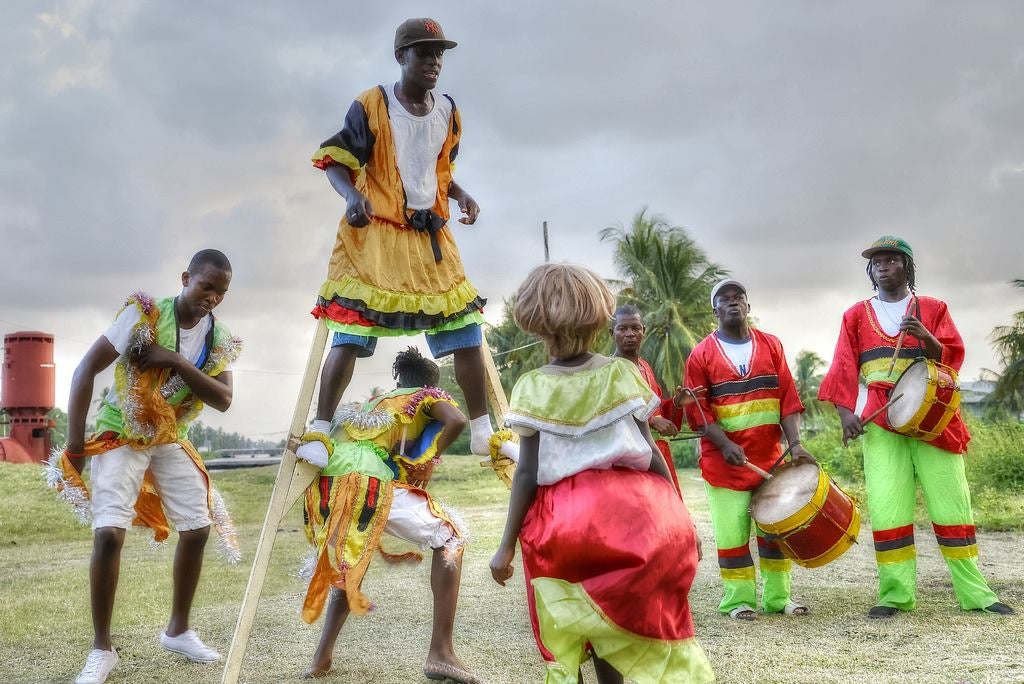Getting your Trinity Audio player ready…
In addition to Christmas, the month of December also has some celebrations unique to the African diaspora. These celebrations, which take place worldwide, from America to the Caribbean to the motherland, celebrate life, unity, and so much more. Here’s a list of some celebrations that take place across the diaspora during the holiday season.
01
Winneba Fancy Dress Festival
The Fancy Dress Festival originates from the West African country of Ghana. Participants dress in extravagant clothing, masks, dance, and sing in the street.
The name of the festival, known locally as “Kaakaamotobi,” derives from the masks that are shaped into fanciful or scary costumes and worn by masqueraders to disguise themselves. The costumes are intended to elicit emotions or reactions like fear, anxiety, or laughter through exaggerated features.
It dates back to colonial Ghana when Dutch and English settlers wore masks to New Year’s Eve parties. Ghanaians in Winneba began forming masquerade groups as far back as the 1930s, partly to mock European life and dress. It’s now evolved into a beloved cultural event. The people of Winneba in the Central region of Ghana hold the annual masquerade festival on the first day of January.
02
Junkanoo/ Jankanu/ John Canoe
The spellings may vary, but the core of this beautiful celebration remains the same. Junkanoo has been around since the 1700s and can be found in the Bahamas, Belize, Jamaica, and the southern United States.
The name is said to have originated from the legendary John Canoe, a revered West African chief. Enslaved Africans in the Caribbean were given three days off a year—Christmas, Boxing Day, and New Year’s Day—and would take to the streets to celebrate.
They used Christmas time as a period to celebrate their African heritage, spiritual beliefs, and heroes from the Motherland. When slavery was abolished, the tradition continued. The colorful celebration features bright, elaborate costumes, goat skin drums, cowbells, and dancing.
03
Kwanzaa
Kwanzaa is a celebration of Black culture and African diasporic unity that began in 1966. Every day of Kwanzaa honors a different principle. Families begin lighting one candle on the kinara daily starting on December 26 to represent the holiday’s seven values: unity (Umoja), self-determination (Kujichagulia), collective work and responsibility (Ujima), cooperation economics (Ujamaa), purpose (Nia), creativity (Kuumba), and faith (Imani). The week-long celebration comes to an end on January 1.
04
Masquerade
During the Christmas season in Guyana, you will almost certainly hear the lively sounds of masquerade bands making their way through the streets. The dancing, drumming and elaborate costumes and effigies of the colonial masquerade bands originated from religious festival traditions of the Ibo and Yoruba tribes of Nigeria. Popular masquerade characters include the mad bull, the long lady, the stilt dancers, and the flouncers, who embody the movements of masquerade.




